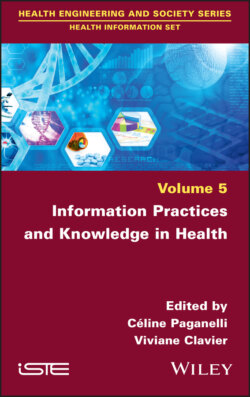Читать книгу Information Practices and Knowledge in Health - Группа авторов - Страница 14
1.6. Plan S, a “radicalization”12 of Open Access in Health?
ОглавлениеThe role of funding agencies took on a particular dimension in September 2018 with the announcement of an international coalition of 13 agencies (including the Agence Nationale pour la Recherche – ANR, French National Research Agency) encouraging researchers to publish in Gold Open Access journals [ELS 18]. The launch of Plan S at the initiative of Science Europe – the association of research funding agencies of the member states – reflects the desire to reinvent the methods of scientific communication by prioritizing the publication of research results from public grants in scientific journals or platforms that respect a number of founding principles of Open Science13.
The announcement was like a thunderclap in the sky of scientific publishing because it took the funding agencies out of the prescriptive role of Open Access dissemination to put them (with the very first draft of Plan S) in the position of favoring one model (Gold and a fortiori Gold Author-Pays) over another (Green representing the Open Archives)
Decried, criticized or welcomed, Plan S is still being debated, two years after its announcement. It is not unanimously supported in all fields14, for obvious reasons of funding mechanisms. However, not all fields rely on project-based research. Furthermore, it has recently been shown [LAR 18] that the funding criterion does not necessarily enter into the researcher’s publication strategy: as soon as authors have the funds to pay for the APC, they prefer to publish in Gold Open Access journals. A fortiori, in Health, where the overwhelming majority of research is project-based, Plan S acts as a catalyst for a restructuring of the scientific communication model around the imperative of access.
The Plan S coalition has been joined by new members including the influential Wellcome Trust; this new policy applies from January 1, 202115. Today, the coalition includes powerful and important public and private funding agencies, who now feel they have a say in how science is communicated and disseminated. In addition to national funding agencies, four private international funding agencies are also associated with Plan S. All four fund Health research: the Bill & Melinda Gates Foundation, World Health Organization, TDR, the Special Programme for Research and Training in Tropical Diseases, and ASAP (Aligning Science Across Parkinson’s). Some of them do not hesitate in their support for experimental Open Access publishing projects that challenge the journal model in favor of the stand-alone article. In doing so, they contribute to a shared reflection on the sustainability or obsolescence of the journal model, with regard to the new requirements for media visibility of validated science [BOU 19a]. As the STM 2018 report [JOH 18] points out,
Strictly speaking, open access is a property of the written outputs of a specific research project, rather than the publication that hosts such outputs. In other words, it is a property of an article rather than a journal, or of an individual monograph rather than a book series.
But above all, what justifies fears about Plan S is the fact that, while it builds its justification on a rhetoric that borrows from the arguments of Open Access, it undeniably introduces market regulation mechanisms to steer the publication strategy of researchers. The management logic of research is integrated into it, and there is a risk that it does not sufficiently take into account the ethical risks that are their corollary.
